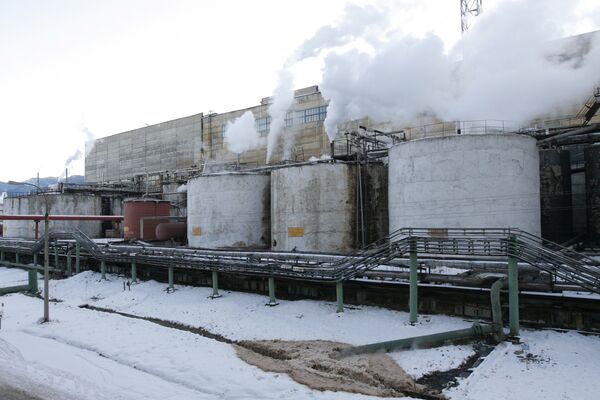MOSCOW, February 27 (RIA Novosti) – The Russian government has finally decided to close down the Baikal Pulp Mill, a longtime target of environmental activists, Deputy Prime Minister Arkady Dvorkovich said on Wednesday.
“We have made a decision to close down the Baikal Pulp and Paper Mill gradually and transfer output...to other enterprises. This is a complex process, but it can be completed in several years,” Dvorkovich said.
The Baikal mill, opened in 1966, has long been a target for environmentalists, who claim it is doing untold damage to the world’s biggest and deepest freshwater lake. Baikal is a UNESCO World Heritage Site which holds 20 percent of the planet's unfrozen fresh surface water.
The mill, the main employer for the nearby town of Baikalsk, was shut down in 2008 over environmental concerns. In 2010, then-Prime Minister Vladimir Putin authorized the plant, controlled by businessman Nikolai Makarov, to resume operations despite the fact that it was still causing pollution.
Last May, employees at the plant wrote to President Putin asking him to protect the mill from creditors, but bankruptcy procedures were launched at the mill in December 2012 following a court order.
State-run national development bank Vnesheconombank (VEB), the mill’s largest creditor, is trying to sort out the plant’s major problems related to its large debts, waste disposal and reemployment for its 2,000 strong workforce.
VEB Engineering head Dmitry Sheibe said on February 19 further measures to liquidate the enterprise and deal with accumulated waste would be clarified within three months.
Stopping production will require at least two years, with liquidation of the mill’s accumulated waste taking around another from four to six years, he said, adding there was no technology in the world which would allow the production process at the mill to continue without doing environmental damage to Lake Baikal.
The Baikal pulp mill site has a huge recreational and tourism potential and proposals have already been made to use it for these purposes, he said
A public campaign to close or convert the Baikal mill became one of the symbols of Glasnost, the "openness" policy proclaimed by Soviet leader Mikhail Gorbachev in the late 1980's.
The campaign involved the nation's leading statesmen and literary figures and forced the Soviet government to promise a halt to pulp production by 1993.
The collapse of the Soviet Union in 1991 suspended implementation of that decision.


